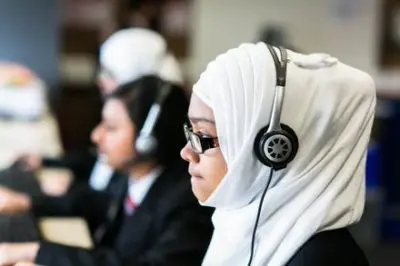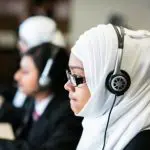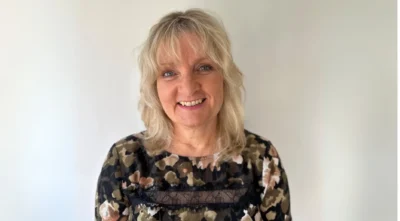Using CAT4 to identify potential in 14 – 19 year olds
By Nigel Ward, Chief Executive of the Northern Schools Trust
The Studio is a new studio school that specialises in technology and gaming. Here, the instigator of the school explains his vision for learning and how CAT4 will be used to gain a valuable insight into his students from the moment they join.
The Studio is the first school in the UK that specialises in technology, digital media and gaming for 14 to 19 year olds. Its mission is to educate its students for success in a digital world and, in particular, for employment, new business ventures and further study in the digital media sector.
Some students will apply their skills directly in the gaming, animation, digital marketing and computer technology sectors, while others will work for businesses and other organisations that use digital media to develop products and services and connect with clients, consumers and patients. These areas may be as diverse as writing computer code that enables your car to find a car parking space or health innovations that apply computer imaging to aid recovery.
Key outcomes
-
Instant data can help you identify students with great potential
-
Includes statistically reliable indicators for future results at the end of GCSE or A level
-
Results will help to either reaffirm or challenge your school’s views about your students
The Studio has adopted a project-based approach to learning, explains Nigel Ward, the instigator of the school and the Chief Executive of the Northern Schools Trust. “We started thinking about the concept about five years ago when we were looking for different vocational and academic pathways for students at the North Liverpool Academy.”
“Having a large, non-selective community academy motivated us to think about delivering our promise, which is that our school needs to serve every one of our students. If you set out your stall in that manner, you need to think about the most appropriate pathway for each child. It just so happened that the Studio School concept was being discussed at the same time and we decided to bid for a school, based on the needs of our students and the strengths of the local economy,” he says.
The Studio opened its doors in September 2013 and it’s already proving to be a popular choice for students in the North West. The area is a hub for gaming and digital businesses; Liverpool alone employs 1,800 people in the gaming sector and generates £300 million annually. The city also has a strong community of small entrepreneurial companies making games, mobile apps, social gaming online and working with creative media companies making films and TV products – and it’s clear that demand for talent in these industries will only continue to rise.
NESTA predicts that creative and digital industries will grow at double the rate of the rest of the economy and at over £2 billion in global sales, the UK’s video games sector is bigger than either its film or music industries. In the games industry alone, it’s anticipated that at least 1,700 more workers are needed over the next five years to maintain the UK’s global position. Today, there are 2,900 vacancies within digital enterprises across the UK.
Set against this backdrop, it’s clear to see why The Studio is meeting a distinct need. It has 150 students on roll at the moment and it will grow to 300 – 350 in the future.
“There has been a massive demand, particularly from boys, and many of these are not the ‘traditional’ academic learner,” says Nigel. “We want to tap into their ambition and create pathways that can be matched to job opportunities.”
Approach to learning
The Studio operates a 9 – 5 working day and the focus is on real world project-based learning and personal development. It also delivers the National Curriculum in a non-traditional manner and the extra 25% of time at school means that students gain a full term of extra study over the course of two academic years.
The school’s partners include the likes of Sony Computer Entertainment as well as a large group of games development studios. Crucially, the school is keen to adopt a two-way approach to work placement: students both work in businesses in the city and partners come into the school to share their expertise.
The Studio’s approach to project-based learning was fine-tuned at the North Liverpool Academy, where some students in Years 10 and 12 took computing as an enrichment activity. They showed that, in addition to their academic work, they could create apps, games and software – and make money in the process. One group of students developed a diagnostics tool for computer games that was taken on by a gaming publisher when they were still at the academy. They are now receiving royalties while studying at university.

14 – 19
When The Studio’s partners were in place, the curriculum had been finalised and the students were raring to go, the school’s leadership team were still very aware that starting with students in Year 10 could pose a challenge. After all, these students arrive with no national attainment data and starting a new school at age 14 is not the norm.
To address this, The Studio decided to assess all students with the new edition of the Cognitive Abilities Test (CAT4) to provide them with an immediate understanding of the students’ learning profiles. It would also give all students a level playing field from the outset.
Used by over 50% of UK secondary schools, CAT4 measures the four main types of reasoning ability that are known to make a difference to learning and achievement: Verbal, Non-verbal, Quantitative and Spatial ability. The resulting data is then used to identify a pupil’s strengths, weaknesses and learning preferences, providing accurate and reliable information for teaching and learning.
CAT4 results also include statistically reliable indicators for a student’s future results at the end of GCSE or A level, helping teachers to set achievable but challenging targets and identify quickly if progress has halted.
Nigel explains, “It’s essential to understand the learning profile of your students. What are their strengths? What areas need development? What’s their natural way of learning? And you must do this quickly, otherwise you’ll spend the first two terms on the back foot.”
“The Studio demands complex, project-based learning,” he adds. “This means that our students are working in a very different way and some knowledge about their strengths and weaknesses is essential. If we didn’t use CAT4, I don’t know where we’d start.”

The Studio's profile
CAT4 produces a profile of a student’s learning potential based on their reasoning abilities and the new Year 10 data shows that students have great potential. While they generally have a balanced profile that is in line with national data, the data is skewed to the average and above average range of ability.
National CAT4 figures show that 19% of UK students are in the above average range of ability. However, for The Studio, 33% fall into this category in Verbal reasoning, 21% in Quantitative reasoning, 30% in Non-verbal reasoning and 33% in Spatial reasoning.
This shows that the school is attracting students of average and above average ability across the four areas of ability tested by CAT4, making them very responsive to the teaching methods and curriculum on offer at the school. It also shows that their students will learn well through a variety of means – through reading and discussion to hands-on doing – rather than excelling at one type of learning over another.
Nigel believes that this could be down to the fact that students have made the definite decision to move. “Changing schools at Year 10 is very unusual. Many students had to persuade their parents that this is what they wanted to do, but it’s clear how driven and motivated they are.”
The results have either reaffirmed or challenged the school’s views about their students. “The data shows us the true potential of our new students,” Nigel explains. “We’re looking at a crop of students who will get A or A* in Computer Science and who we know will be able to hold their own in industry. If we look back at the ambition for the school, the data has reassured us that our ambition is deliverable.”

Engaging reluctant learners
Given the technical focus of the school, The Studio has also attracted students with specific special educational needs, such as Aspergers or autism. “There is a particular group of very driven boys who can code or who are drawn to creative media who haven’t previously enjoyed school,” Nigel explains. “The Studio is giving them a focus in areas where they excel.”
Indeed, the recurring theme with all studio schools is that they are focused and fit for purpose. Nigel explains, “By their very definition, studio schools will attract students who will fit into non-traditional environments and I would encourage everyone setting up a studio school to welcome these students and their families. There can be a lot of employability for someone when they are given the right pathway.”



